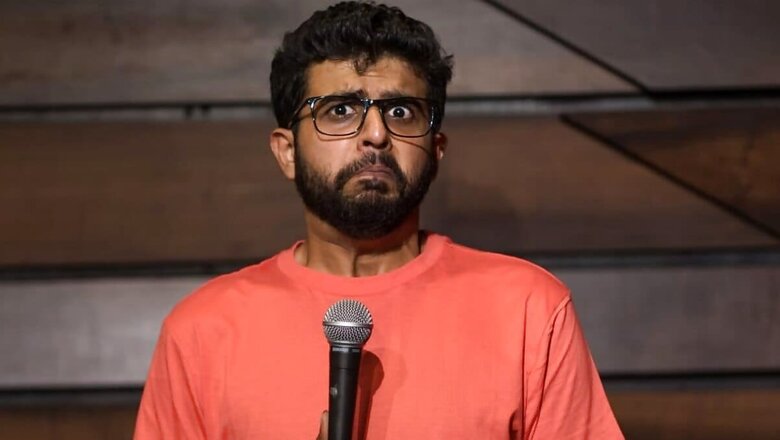
views
Mumbai born stand-up comic Aakash Mehta made his way into everyone’s heart with his stint in Netflix Reality Show Social Currency. Not only did he emerge as the winner of the show but was also the only non-influencer contestant amid popular social-media faces such as Sakshi Chopra, Vagmita Singh, Parth Samthaan, Bhavin Bhanushali to name a few. Now that the show is over and Aakash Mehta has the winning crown on his head, he exclusively spoke to News18 Showsha about his time on the show,
what it means to be vulnerable, what he did with the winning amount as well as his YouTube Special Nasty that touches upon some important topics.
Here are the excerpts:
Your time at the Social Currency Villa was a roller coaster ride. Amid so many influencers, as someone who came from a totally different world altogether, did you feel left out? How did you deal with that feeling?
More than being left out, I think one’s value set comes into question. I’ve consciously stayed away from the temptations of becoming an influencer, but here are some people who’ve completely given in to the idea and are incredibly successful too. So it almost felt like, “Why didn’t I choose the path of least resistance and become like them?” Why did I choose this uphill struggle? “Was I wrong to not chase the number of followers?” Of course, time answers all these questions quite clearly, and since I got my self-belief back, there was no stopping me!
People loved you in the show because you were not nervous to be vulnerable. To do that on camera, what gave you the strength and motivation?
What have I got to lose? My game plan in life is simple: I’m going to be as honest as I can, first with myself and then with the people around me. When I was initially diagnosed with anxiety and depression, I felt like the only person in the world who felt that way. Opening up about our issues just makes us realize that we aren’t the only ones feeling that way, and that gives us immense comfort and confidence.
People have this perception of social media influencers as having it easy. Being inside that house for 21 days, what were some of your major observations about it? And whether you stepped inside the house with a preconceived notion about other participants?
They definitely have it easy. And here’s why: because their job has been made easy by the apps they service. They aren’t incentivized to be original (they just have to recreate or repost other ideas that are already “trending”). They have zero accountability. Just see how many influencers routinely sell scam products or products with false claims. Even in the show, you could see that. If there was any research into how much crypto influencers sold and how many of them got out before the crash, you’d realize. They exist only to sell products, and the saddest part is that most of them don’t even realize it.
Now that the show is over and you have won, who, according to you, is really your biggest competition?
Bhavin! Without a doubt, it was Bhavin. which is why I couldn’t vote for him.
Did the friendships that were formed inside the villa last after the show got over? What are your current equations with the co-contestants?
The show lasted only 21 days and was shot in October 2021. I didn’t really get the chance to keep in touch with anyone after, except for the occasional text here and there.
What did you do with the sum of money you won?
1. Mutual Funds
2. Other projects.
3. Charity
Now you are a comedian first, and then anyone else. Has the way you create content on social media or curate your feed changed after the show? Are you more mindful of the statistics, engagements, and stuff like that?
If, after watching that show, you still think that those numbers matter, then nothing can save you.
Coming to your YouTube special, Nasty, how did you decide to base your set around sex and sex education, and what have you gauged from the reception you got?
What frustrates me more than any issue in our country is the way we deal with it. We just refuse to acknowledge or talk about them at all. Only by engaging with each other can we come to conclusions. So I just wanted to talk about this and see where things go. As I watched the show more and more, I realized that this is definitely on a lot of people’s minds, and this show is a great way to change the context of this taboo topic to being a funny, easy-going thing that is easy to talk about.
Do you believe this special will create an impact and bring out some ounce of change in the way we approach conversations around sex?
I’ve seen it initiate conversations since I’ve been performing Nasty since 2019. It’s definitely a conversation-starter. And that’s really the only goal of art. It starts conversations. Changing is for people to do.
Do you feel the stand-up comedy space is getting saturated with every passing month since every second person is aiming to do stand-up? What does the future hold for the Indian stand-up comic in general?
This country has a population of 140 crore people, give or take. If 70 crore were trying to stand up, it would look very different. I would say stand-up is still a very niche art form practiced primarily in urban India.
As for its future, who knows? not too certain in a country that has a tough time laughing at itself.
After social currency, will you be interested in more such reality shows, or have you had your fill already?
I definitely have had my fill, but as they say, “never say never, never tempt fate.”
How do you think Indians approach conversations around sex, and what do you hope to achieve through your special Nasty?
I think we don’t approach it alone. We skirt around the issue without ever getting into the nitty-gritty. With Nasty, my goal is to destigmatize through humor. If you can laugh about it, maybe you’ll be able to discuss it with friends afterwards.
Why did you choose the name “Nasty” for your special?
In India, the audience rarely reads the show description before coming. This can lead to a lot of disappointment for them if they come for the wrong kind of comedy show. By calling it Nasty, I made it abundantly clear what kind of jokes I would be making.
What do you want audiences to take away from your show, and how do you think it can encourage more open conversations around sex in India?
Well, first and foremost, they take away a great time and lots of laughs! And I think after they’re done laughing about the things I talk about, they realize that those things aren’t really that taboo. I want to facilitate conversation. That’s the point of art. to get people talking.
Tell us a bit about your ongoing stand-up tour, “Dark: A Standup Comedy Special.”
Dark is a chance for me and my twin brother Prakash Mehta to go around the country and explore other social mores of our times. At its core, Dark is a show that explores morality and mortality. What does it mean to be a good person? And what does it all mean when you face the fact that you will die one day? It’s all very funny, trust me.
How’s the response so far?
People are slowly discovering Nasty online, and it’s wonderful to see their reactions to it from all over the country. The Dark Tour is an absolute delight to go on! It’s such a blast to see people react to the jokes in different cities. Dark is a niche show, but the audience that comes for it is fully on board, and that makes for a hell of a show!











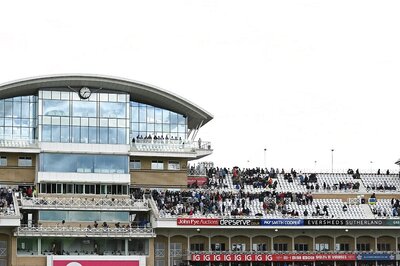


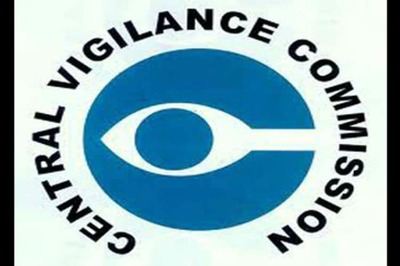
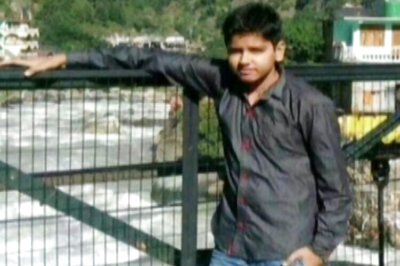

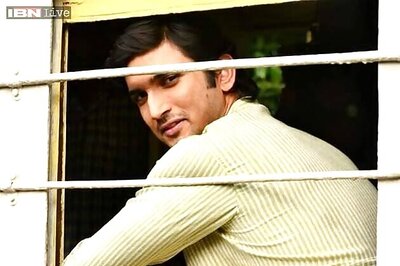
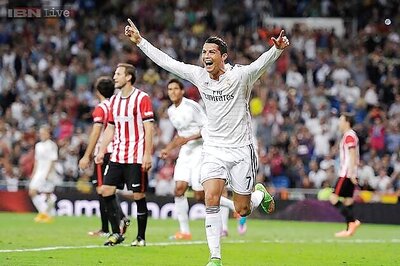
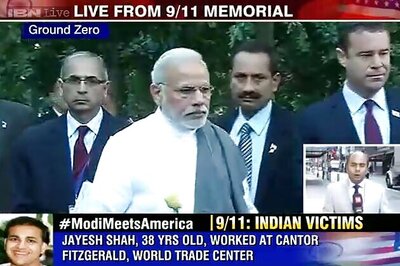
Comments
0 comment